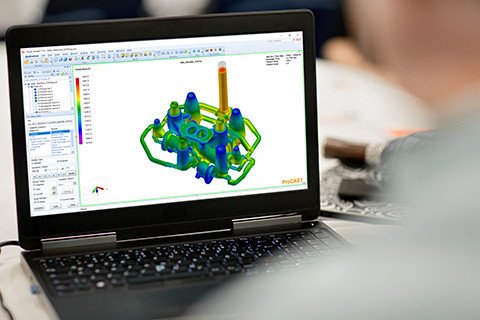Innovation in Tech Ventures: Navigating the Future of Technology

In a world where technology is evolving at an unprecedented pace, innovation has become the cornerstone of success for tech ventures across the globe. From artificial intelligence (AI) and blockchain to quantum computing and the Internet of Things (IoT), the tech industry is undergoing a revolution. As new ideas emerge and old paradigms are disrupted, tech ventures must navigate an increasingly complex landscape to remain competitive and relevant.
In this article, we explore the current state of tech innovation, how it is shaping the future of industries, the key trends to watch, and the challenges that entrepreneurs and investors face in this fast-moving domain. We will also delve into the role of venture capital in fueling these innovations and examine the entrepreneurial spirit that drives the development of breakthrough technologies.
The Role of Innovation in Tech Ventures
Innovation in tech ventures is not just about creating new products or services—it’s about fundamentally changing the way people live, work, and interact with the world. It involves leveraging new scientific discoveries, technological advancements, and creative problem-solving to address both existing and emerging challenges.
Tech innovation can be broken down into two broad categories: incremental innovation and disruptive innovation. Incremental innovation involves making gradual improvements to existing products or services. These innovations are often evolutionary rather than revolutionary, but they can still have a significant impact. Disruptive innovation, on the other hand, is the kind that turns industries upside down. It typically involves introducing new technologies or business models that render existing products or services obsolete.
Some of the most well-known examples of disruptive innovation in the tech world include the rise of smartphones, the advent of cloud computing, and the development of social media platforms. These innovations have not only reshaped industries but also changed the way people communicate, consume media, and interact with businesses.
Emerging Trends in Tech Innovation
Tech ventures are often at the forefront of emerging trends that promise to transform the global economy. As we look toward the future, several key trends stand out as game-changers:
- Artificial Intelligence and Machine Learning (AI/ML)
Artificial intelligence (AI) and machine learning (ML) are among the most significant drivers of innovation in tech ventures. AI systems are designed to mimic human intelligence and can perform tasks such as image recognition, language translation, and decision-making. Machine learning, a subset of AI, allows computers to learn from data and improve their performance over time without being explicitly programmed.AI is already making an impact in sectors like healthcare, finance, education, and manufacturing. For instance, AI-powered diagnostic tools are helping doctors detect diseases more accurately, while ML algorithms are enabling financial institutions to predict market trends and manage risks more effectively. In the coming years, AI is expected to become even more integrated into everyday life, powering everything from smart homes to autonomous vehicles. - Blockchain and Cryptocurrency
Blockchain technology, which underpins cryptocurrencies like Bitcoin and Ethereum, is another area of intense innovation. Blockchain provides a decentralized, transparent, and secure way of recording transactions, making it an attractive solution for industries like finance, supply chain management, and healthcare.In addition to cryptocurrencies, blockchain has the potential to disrupt industries such as real estate, voting systems, and intellectual property management. For tech ventures, blockchain presents an opportunity to build new, decentralized platforms and services that challenge traditional centralized systems. - Quantum Computing
Quantum computing is still in its infancy, but it holds the promise of revolutionizing fields such as cryptography, optimization, and material science. Quantum computers use the principles of quantum mechanics to process information in ways that classical computers cannot.While the technology is still evolving, quantum computing could lead to breakthroughs in drug discovery, climate modeling, and even artificial intelligence. For tech ventures, investing in quantum computing research and development could be a way to stay ahead of the curve and capitalize on future breakthroughs. - The Internet of Things (IoT)
The Internet of Things (IoT) refers to the network of physical devices—such as sensors, wearables, and smart appliances—that are connected to the internet and can communicate with each other. IoT has already begun to change the way industries operate, enabling real-time data collection and analysis.In healthcare, IoT devices can monitor patient vitals and send data to doctors in real-time, while in agriculture, IoT sensors can track soil conditions and weather patterns to optimize crop yields. As IoT continues to expand, tech ventures are exploring ways to build new platforms, services, and devices that leverage this interconnected world. - Augmented Reality (AR) and Virtual Reality (VR)
Augmented reality (AR) and virtual reality (VR) are technologies that immerse users in digital environments, either by overlaying virtual elements onto the real world (AR) or by creating entirely virtual worlds (VR). While these technologies are already being used in gaming and entertainment, their potential extends far beyond that.In education, AR and VR are being used to create interactive learning experiences, while in retail, businesses are using AR to allow customers to try products virtually before purchasing. In the field of medicine, VR is being used for surgical training and therapy. For tech ventures, AR and VR represent exciting opportunities to create new consumer experiences and business applications.
Venture Capital and the Role It Plays in Fueling Innovation
Innovation in tech ventures often requires substantial financial backing, and this is where venture capital (VC) comes in. Venture capital plays a crucial role in helping startups and emerging companies turn their groundbreaking ideas into scalable businesses. VC firms provide funding in exchange for equity, and their involvement can be critical for the growth and success of a venture.
VC investors are typically looking for high-growth opportunities that have the potential to disrupt industries or create entirely new markets. In return for their investment, they expect a significant return on their investment (ROI). This means that they are more likely to back ventures with innovative technologies or business models that have the potential to scale rapidly.
In recent years, VC funding has been pouring into areas such as AI, blockchain, and biotech, as investors seek to capitalize on the next wave of technological breakthroughs. However, securing venture capital is not easy, and entrepreneurs must be able to demonstrate the potential of their ideas and their ability to execute. This requires not only technical expertise but also a strong business acumen and a clear vision for the future.
Challenges for Tech Entrepreneurs and Investors
While the opportunities in tech innovation are vast, the road to success is not without its challenges. For entrepreneurs, some of the key hurdles include:
- Intense Competition
The tech industry is incredibly competitive, with new startups emerging every day. Entrepreneurs must be able to differentiate their products or services in a crowded marketplace and convince customers to adopt new technologies. This requires a deep understanding of customer needs and an ability to innovate quickly. - Regulatory Hurdles
As new technologies emerge, governments and regulatory bodies are often slow to catch up. This can create uncertainty for tech ventures, especially in areas like data privacy, AI ethics, and blockchain regulation. Entrepreneurs must navigate these regulatory challenges while ensuring that their products and services remain compliant with laws and regulations. - Funding and Resources
Access to capital is one of the most significant challenges for early-stage tech ventures. While venture capital is a critical source of funding, securing investment is not always easy. Entrepreneurs must be able to present a compelling case to investors and demonstrate that their venture has the potential for significant growth. - Talent Acquisition
Building a successful tech venture requires assembling a team of talented engineers, developers, marketers, and business leaders. The demand for skilled tech talent is high, and finding the right people to join a startup can be a challenge. Entrepreneurs must offer competitive salaries, benefits, and a compelling vision to attract top talent.
The Future of Tech Ventures
The future of tech ventures is bright, but it is also uncertain. As technologies continue to evolve, the opportunities for innovation will expand, and new industries will emerge. However, the pace of change also means that businesses must be agile and willing to pivot as new trends and technologies arise.
For tech entrepreneurs and investors, the key to success lies in staying ahead of the curve, embracing new technologies, and being prepared to adapt to an ever-changing landscape. By fostering a culture of innovation and continuously seeking out new ways to solve problems, tech ventures will continue to shape the future of technology and drive progress across industries.
In conclusion, innovation in tech ventures is not just about the products and services that are developed—it’s about transforming the way people live, work, and interact with the world. As emerging technologies such as AI, blockchain, and quantum computing continue to evolve, the possibilities for innovation are limitless. For entrepreneurs and investors, the key to success lies in harnessing these technologies, overcoming challenges, and staying focused on the future. In doing so, tech ventures will continue to lead the way in shaping the future of technology and creating a better, more connected world.





